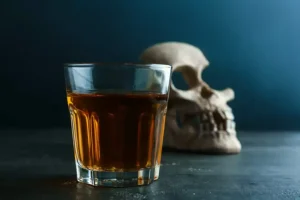This press release contains forward-looking statements and forward-looking information (collectively, “forward-looking statements”) within the meaning of applicable securities laws. Any statements that are contained in this press release that are not statements of historical fact may be deemed to be forward-looking statements. FSD Pharma cannot give any assurance that such forward-looking statements will prove to have been stages of alcohol intoxication correct. When the individual does not consume alcohol regularly, they may experience withdrawal symptoms and intense cravings. On the other hand, low to moderate levels of alcohol consumption (≤ 1 to 2 drinks/day) may decrease the risk of death due to cardiovascular disorders (1). Numerous explanations, including increased high density lipoprotein (HDL) levels and a direct antithrombotic effect, have been suggested.
Impact on your health
These can vary between people and depend on the severity of intoxication. Not only the effects of alcohol but also the complications caused by it – such as accidents and violence – are a major threat to a person’s health. The term intoxication is commonly used when large amount of alcohol is consumed along with physical symptoms and deleterious health effects. Alcohol abuse and binge drinking are common, and they put many people at risk of alcohol poisoning, alcohol addiction, and chronic alcohol-related health problems. When a person consumes alcohol, the full effects may take some time to become apparent.
Stupor (0.25 – 0.49% BAC)
These symptoms often occur in stages, depending on how intoxicated a person is. The table below shows common symptoms at each level of alcohol intoxication. A doctor can diagnose intoxication by checking the patient’s blood alcohol content levels.
International Patients
Patients should be carefully monitored after being treated and stabilized as their vital functions return to normal. BetterHelp offers affordable mental health care via phone, video, or live-chat. At a BAC of 0.45 or above, you are likely to die from alcohol intoxication. Excessive alcohol use causes approximately 88,000 deaths annually in the United States, according to the Centers for Disease Control and Prevention (CDC). Blood alcohol content (BAC) is the unit used to measure the amount of alcohol in a person’s bloodstream.


Alcohol use disorder can include periods of being drunk (alcohol intoxication) and symptoms of withdrawal. The impaired judgment you have when drinking alcohol may cause you to think that you can still drive, regardless of your BAC. Drivers with a BAC of 0.08 or more are 11 times more likely to be killed in a single-vehicle crash than non-drinking drivers.
What to know about alcohol poisoning
The alcohol by volume (ABV) also affects a person’s inebriation duration. ABV is the percentage of pure alcohol within a drink’s total liquid volume. This article examines the effects of alcohol, their duration, and whether individuals can hasten the sobering process. As a bartender or alcohol server, it’s your responsibility to stop service once you suspect that someone is over their limit.
Phase 3: Coping Method—A Slow Descent With Few Warning Signs
- Our body breaks ethanol down at a rate of around 15 mg/dL per hour.
- Nonetheless, alcohol should not be recommended for this purpose, especially when there are several safer, more effective approaches to reduce cardiovascular risk.
- Never able to fully escape the iron grip of addiction, Winehouse became one more prominent member of the 27 Club.
- Vestibular disturbances may cause them to believe that the floor is moving, the walls are falling, or the room is rotating.
- Several well-known criteria can be used to establish a probable diagnosis.
You will also start to experience the negative effects of alcohol, including problems with judgment, memory, and coordination. Most people experience similar effects at certain BAC ranges. They include Sobriety/Minimal Intoxication, Euphoria, Excitement, Confusion, Stupor, Coma, and Death. If your pattern of drinking results in repeated significant distress and problems functioning in your daily life, you likely have alcohol use disorder.
Movies Based on True Stories
Why Should We Be Concerned About AUD and Alcohol Addiction?

